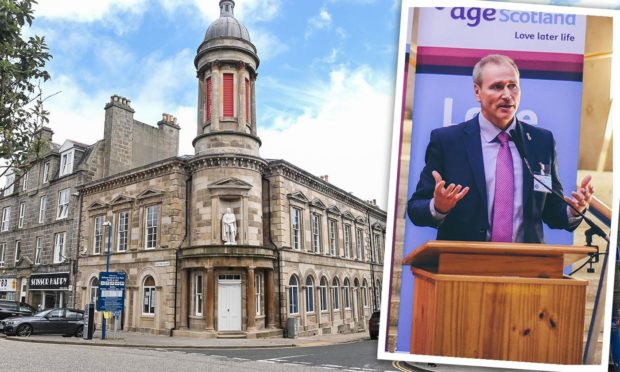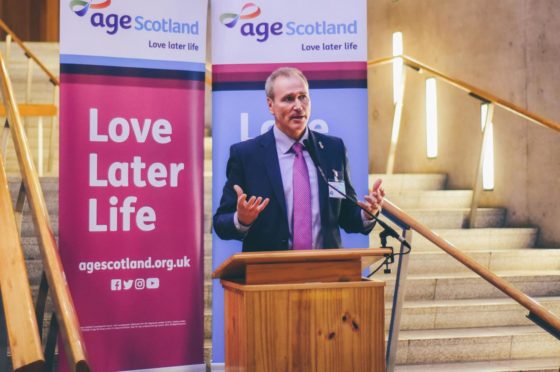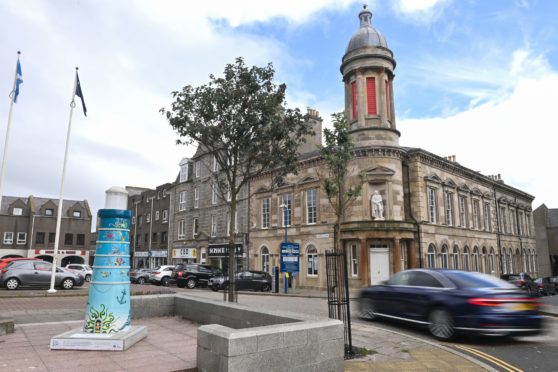Aberdeenshire Council is facing accusations of ageism following the decision to stop accepting cash and cheque payments at its offices across the north-east.
In January, the local authority’s business services committee agreed to “phase out” cash payments at its sites because it is more expensive than card transactions.
The option to pay by cash or cheque at Post Offices was retained.
However, the council has now been accused of keeping pensioners in the dark after sending out letters in February which failed to inform tenants of the changes.
Residents claim the shire’s older population – particularly those who are uncomfortable using card or online payment methods – are being neglected, particularly as many communities’ Post Offices are too small to cope or have closed altogether.
Council documents from January’s meeting show nearly a third of all transactions were carried out using cash or cheque.
Each transaction costs the council around six pence more than if the payment had been made by card.
Elderly residents hit hardest
Bosses at the charity Age Scotland have also expressed concern about the “disproportionate impact” of the policy on older people.
“The decision to phase out cash and cheque payments at Aberdeenshire Council offices will have a disproportionate impact on older people in the community who are more likely to rely on these payment methods,” said the organisation’s chief executive Brian Sloan.
“The Covid-19 pandemic has seen an accelerated move towards a digital by default society and, while digital and card-only payments can be safe and convenient for many, they are simply not an option for others.
“For example, we estimate that almost half a million people over 60 don’t use the internet, while around 140,000 adults in Scotland do not have a bank account. So, as services increasingly move online, it’s vital to ensure that older and more vulnerable people are not left behind.
“As Post Office services have also been disappearing rapidly, some communities no longer have access to a local Post Office branch and many older customers may not find it easy to travel to the next town to make payments. There will also be pressure on remaining local Post Offices to handle this additional workload.
“Going forward, we hope that Aberdeenshire Council will provide reassurance that those who use cash only and do not have access to an online bank account will still have their needs accommodated and be supported to make payments in a way that is most convenient for them. Without this flexibility, a large number of older residents are at risk of being excluded.”
Policy is ‘profit over people’
Fraserburgh resident Lorraine Noble contacted us after discovering she would no longer be able to pay her rent by cash at the town’s new Faithlie Centre.
A council tenant for more than 50 years, Lorraine has always preferred to pay by cash.
However, she can now only do so at a small Post Office which she says is not big enough to cope with demand.
Accusing the local authority of ageism, Lorraine said she has been left “totally dismayed” by the lack of communication from council officials.
“The council need to consider us pensioners,” she said.
“Their own documents show many people still want to pay by cash or cheque so why are we being forgotten?
“It is ageism. Most of the people affected by this are pensioners.
“Lots of people don’t feel comfortable or aren’t able to use card or pay online.
“A lot of people are not ready for a ‘cashless society’. They are putting profit over people.”
‘Steady decline’ in cash payments
A spokesman for Aberdeenshire Council said the policy was the result of a “steady decline” in the number of people using cash and cheque.
“We have seen a steady decline in the number of cash and cheque payments at our service points over the past few years as people move to card and digital options,” he said.
“For those who wish to continue using these methods, customers can pay for a number of council services by cash and cheque at Post Office branches and stores offering PayPoint facilities across Aberdeenshire.
‘’We provide details of the available payment methods to all customers as part of our billing process and are happy to provide advice to customers who have specific payment option queries.’’


